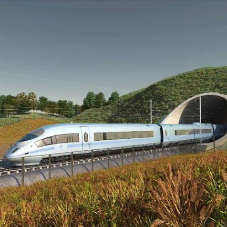Guest Post provided by Euroheat, the leading supplier of wood burning stoves and biomass boilers in the UK.
With the tariffs for the Government’s Renewable Heat Incentive (RHI) scheme now set, there is likely to be much more of an uptake of biomass boilers over the coming months, something that can only be good news for the environment.
The domestic RHI scheme, due to begin next spring, is guaranteed for seven years, and index linked to inflation. The Government expects the RHI to make a significant contribution towards its 2020 ambition of having 12 per cent of heating coming from renewable sources. The proposal for RHI is that the Government will pay householders a tariff, just announced as 12.2p, for every 1140hrs kWh of heat generated by a supported technology including wood biomass.
So what exactly is biomass?
Wood is one of the cleanest energy sources available as it is renewable, and has far lower carbon emissions than traditional fuels like coal and oil. Wood is effectively carbon neutral because the CO2 stored in the wood is simply released again when it is burned. This means it gives off the same amount of CO2 as if it were rotting on the forest floor.
The wood used for biomass fuel doesn’t come from slow-growing trees like oak but from fast-growing species that can be managed much more effectively and quickly. Some biomass can even be created in a matter of months, making it a far better solution for heating our homes. Most biomass comes from local forestry and forestry residues, even willow coppicing. Waste from sawmills can also be used as biomass. The only really bad wood is wet wood, or any processed materials such as ply wood and chipboard.
Types of biomass fuel
• Wood logs
Wood logs burn most efficiently when well seasoned (dried) and split. Burning logs with a high moisture content reduces the heat output and shortens the life of your woodburning stove or boiler by depositing sticky residues in the flue.
• Wood Pellets
Made from 100% natural wood, pellets are made from shavings and sawdust that are compressed under high pressure into cylindrical shapes that are easier and cheaper to transport than logs, especially if they are manufactured at source. Wood pellets burn efficiently and create a smaller amount of ash than logs, making them an idea fuel for large boilers.
• Wood Chips
Made from quick-growing trees, branch wood or coppice products, wood chips are, like wood pellets, a highly efficient way to fuel a boiler. They are mechanically shredded in a chipping machine and are air-dried before chipping.
So what’s the incentive for switching to biomass?
The cash back rates for biomass are 50% higher than what was anticipated, making it an excellent proposition for homeowners looking to save and even make money. As an example, Euroheat’s Compact 35 kW boiler will earn £4,867 a year, giving a total pay back over the RHI’s seven year lifespan of up to £34,000.
The other good news for biomass is how the figures stack up for other technologies. For a brand new two bed property for example, an Air Source Heat Pump may be the best choice and will provide the home owner a reasonable return. The bigger and older the property, however, heat pump technology becomes unsuitable due to the low power output of the systems, whether ground or air source.
Aside from the cash back, the fuel savings should also be borne in mind, particularly for those properties switching from oil. Many home biomass boilers will be log fuelled – the cheapest way to heat a house with wood. Fuel for a large log boiler costs about £700 a year if bought in bulk, with the equivalent oil system consuming around £3,500. For end users with access to their own wood supply, the savings are even greater. Admittedly there is a significant investment involved in buying and installing a biomass boiler, but biomass is cheaper than traditional fuels, and with the help of this incentive, the long-term savings should be substantial.
The RHI can only be good news in helping homeowners lessen their negative impact on the environment. Heating is the biggest use of energy in the UK, accounting for 47% of the country’s CO2 emissions. Apart from Malta, the UK has the lowest contributions of renewable energy in Europe, just 10% of its energy needs. Top of the class is Sweden, where over half of the country’s energy needs are supplied by renewables. It’s about time the UK got up to speed and this legislation should take the sting out of the costs involved with changing to renewable energy heating systems.
Further Information
Euroheat can be contacted on 01885 491112 or www.euroheat.co.uk
 Simon Holden, Chairman of Euroheat.
Simon Holden, Chairman of Euroheat.
Related Blog Articles












![Communicating with specifiers & developing a personalised persona [EVENT] Communicating with specifiers & developing a personalised persona [EVENT]](/20/blogentry/00/04/48/th382.png)